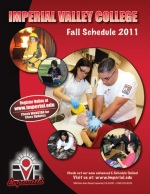FREQUENTLY ASKED QUESTIONS
Q. I want to become a full-time peace officer. Can the Regular Basic Course (RBC) Program help me?
A. Yes. The RBC can help you even if you do not become a reserve officer prior to seeking full-time law enforcement employment. The classes will help you develop a law enforcement atitude and provide considerable police training. Successful completion of the courses proves to potential law enforcement employers that you have the aptitude for police work and can endure a para-military style academy environment.
Q. What is "P.O.S.T."?
A. The term "POST" is an acronym for California Commission on Peace Officers Standards and Training.
Q. What are the age, height and weight requirements to enter the academy?
A. The only absolute requirement is that cadets be a minimum of 18 years old. There is no maximum age. The student must be able to do physical activity.
Q. Is the academy recognized by out of area law enforcement agencies?
A. Yes. The POST certificate is recognized throughout the state of California. The academy curriculum exceeds California POST standards for Regular Basic Course (RBC) training.
Q. Do I receive college credit for completion of the academy?
A. Yes. The RBC Level III class is worth 10.0 units, The RBC Level II class is worth 13.5 units and the Arrest and Firearms class (PC832) is worth 3.5 units.
Q. When should I apply to the agency that I want to work for?
A. You can apply at any time. However, we reccommend you complete the course.
Q. What do Reserve Officer uniforms and badges look like?
A. Reserve Officers or Reserve Deputies are generally indistinguishable from regular, full-time officers or deputies. This includes uniforms, shoulder patches and badges.
Q. What do Reserve Officers get to do?
A. It depends on the experience and qualifications of the reserve officer and on the policy and practices of the agency. Level II officers have full peace officer powers while on duty, but must be supervised by either a Level I officer or a regular, full-time officer. Level I officers may, depending on the policy of the agency, be deployed in the same capacity and assignments as a regular, full-time police officer. Check with the reserve coordinator of the particular agency for specific details on deployment.
Q. I have a "little problem" in my background. Will that keep me out of a law enforcement career?
A. Every agency maintains their own guidelines for officer selection. You cannot have any felony convictions and must be of sound mind and character. Beyond that, it is up to the criteria of the individual agency. When applying, it is important to be completely honest about your background.
Q. Does the academy conduct a background investigation?
A. Yes, the academy conducts a Department of Justice (DOJ) search to ensure cadets have no felony or domestic violence convictions on their record.
Q. Does every cadet become a Police Officer or Reserve Officer?
A. No, not usually. Most of the qualified graduates are picked up by an agency within a year after graduation.
Q. Do I have to participate in firearms training?
A. Yes. Firearm qualification is mandatory for P.O.S.T. certification and for successful completion of the program.
Q. Do I have to participate in chemical agents training?
A. Yes. Chemical agents training is an integral portion of the course and is mandatory for P.O.S.T. certification and for successful completion of the program.
Q. Do I have to participate in physical training?
A. Yes. Physical qualification is mandatory for P.O.S.T. certification and for successful completion of the program.
Q. Can I miss some academy sessions for work-related obligations?
A. Only 3 days, but there are many mandatory days that cannot be made up if they are missed.
Q. Does the academy conduct a background investigation?
A. Yes, all applicants must complete a background check ‘Livescan’ a minimum of 2 weeks before the first day of class. Once the results are final, a copy of the Department of Justice (DOJ) clearance letter must be submitted to the POST department office.







